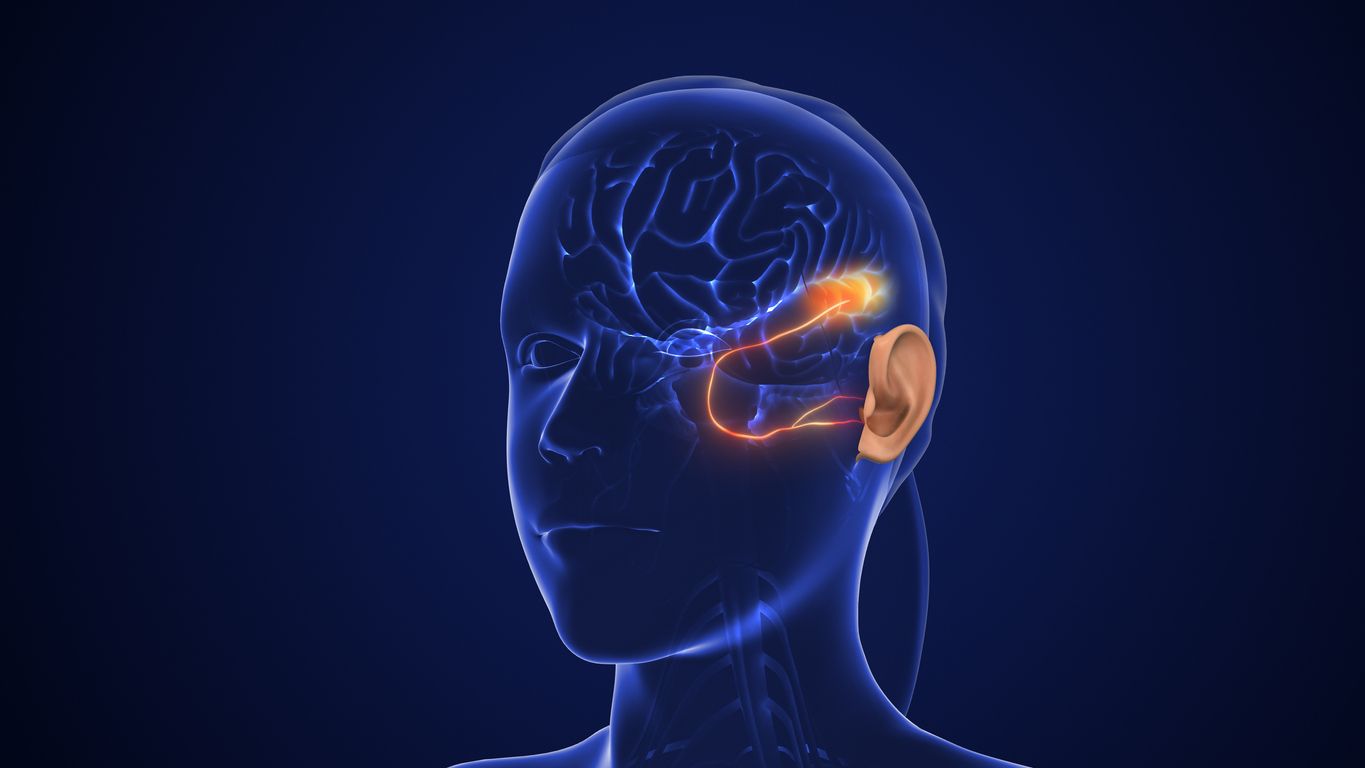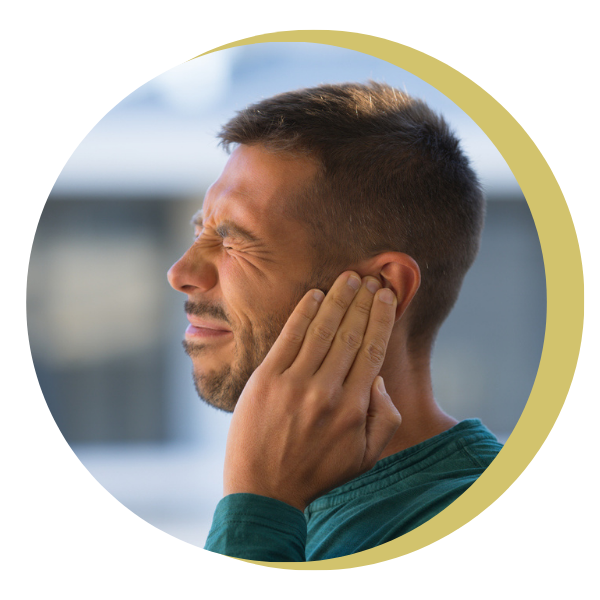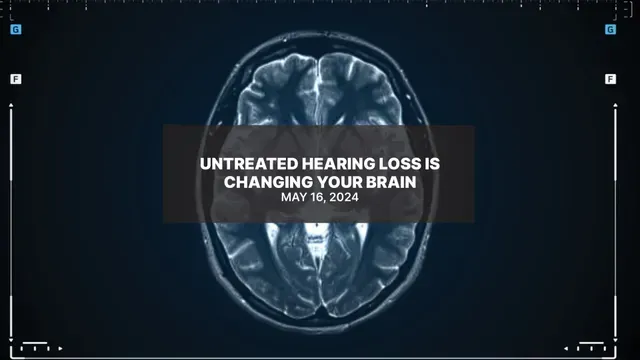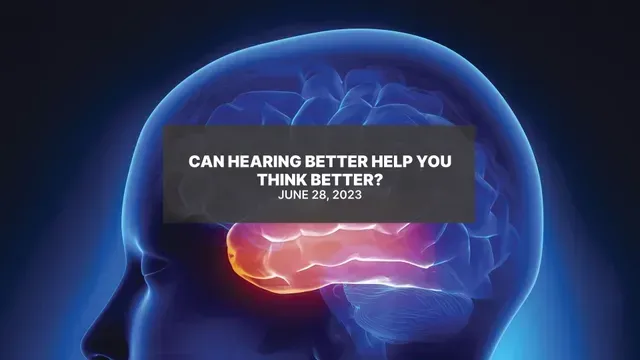The Powerful Connection Between Hearing Loss and Brain Health
Hearing Loss and Brain Health: Understanding the Connection
Your ears may pick up sound, but it's your brain that makes sense of it. That’s why hearing loss doesn’t just affect your ability to listen—it affects how your brain functions. Recent research shows that even mild hearing loss can lead to changes in brain activity, increased cognitive load, and long-term structural reorganization.
At Johnson Audiology, we believe hearing care is brain care. Here’s what science is revealing—and how treating hearing loss early may help protect your cognitive health.
How Hearing Loss Changes the Brain
Studies have found that hearing loss triggers neuroplasticity, the brain's ability to reorganize itself. When the brain stops receiving normal levels of sound, it compensates by recruiting other senses—like vision—to fill in the gaps. This shift rewires neural pathways in the auditory cortex and other areas of the brain.
Mild Hearing Loss = Measurable Brain Change
Research from the University of Colorado Boulder's Brain and Behavior Laboratory found that even mild sensorineural hearing loss (SNHL) causes the brain to reorganize—and these changes begin quickly, not just after years of hearing decline.


What compensatory mechanisms does the brain employ because of hearing loss?
The human brain is accustomed to and wired for receiving a full range of environmental sounds with speech being one of the most complex and structured that the human brain interprets. Thus, when an auditory task that was once effortless—like listening to a conversation in a busy restaurant—becomes challenging due to hearing loss, the brain compensates by seeking to accomplish the same goal by way of vision. Researchers have found that the brain physically changes when this recruitment of vision happens, with the higher order areas of the auditory cortex showing functional changes when recruited by vision. Using electroencephalography (EEG) on people with hearing loss, researchers stimulate the brain using only visual input and observe that areas of the brain that responded to auditory input before hearing loss have reorganized to respond to visual stimuli.

What is happening in the frontal and pre-frontal areas of the brain?
Using electroencephalography (EEG), researchers have noted increased activity in the frontal and pre-fontal areas in the brain in those with even mild hearing loss. This re-allocation of cortical resources from the auditory areas to the frontal cognitive areas suggests that the brain is expending more effort to listen. This increase in cognitive load can lead to listening fatigue, may be a factor in cognitive decline, and can put a person at higher risk for mental health issues like anxiety and depression.

Can improving hearing with hearing aids and cochlear implants help the brain?
Yes! Long-term research is still being gathered to paint the full picture on the benefits of hearing technology—like hearing aids and cochlear implants—as it applies to decreased brain recruitment and reorganization, but initial research points in that direction. Some case studies reveal that people wearing hearing aids appear to show a reversal in brain recruitment and reallocation. Further, the brain of a person who has been treated for hearing loss sooner rather than later experiences fewer changes in cortical resource allocation. Also, that person is more likely to retain better speech perception as compared to a person whose brain has "forgotten" how to hear as a result of long-term untreated hearing loss.

What is on the horizon for a cognitive component to audiologic testing?
Within the audiologic profession, there is a movement that is gaining momentum to fold basic cognitive function screening into hearing testing. Since cognitive issues often present similarly to listening disorders, it makes sense that in coming years audiologists will include a full battery of cognitive assessments to bring greater insight and understanding to a person's overall cognitive health, even when looking at a specific condition like hearing loss. In fact companies are already developing assessment tools that measure reaction time to demonstrate how quickly the brain coordinates between stimulus and response. As science continues to connect the dots of hearing disorders and brain health, hearing care is certain to emerge as a vital tool in improving patients' overall health and wellness, especially since early detection of hearing loss and cognitive impairment is important because hearing loss in mid-life is a risk factor for dementia.

How are tinnitus and the brain connected?
Tinnitus, or ringing in the ears, can manifest from a variety of factors. While tinnitus may have similar characteristics from person to person, each individual's experience with tinnitus can be different in terms of severity, manifestation, and a person's ability to cope with the condition. As much as 90 percent of tinnitus cases can be traced to hearing loss, and even mild hearing loss can lead to tinnitus. Researchers now know that, physiologically, tinnitus occurs in the dorsal cochlear nucleus (DCN). The DCN is the interaction site of auditory and somatosensory system inputs. According to the stochastic resonance theory, hearing loss increases the neural activity of the somatosensory system in the DCN and causes tinnitus. In essence, the brain detects hearing loss in certain frequencies and fills in the silence with ringing. Tinnitus flare ups can also be triggered or exacerbated by things like stress, ototoxic medications, smoking, alcohol consumption, and more. The best place to start in seeking a tinnitus management plan is with a doctor of audiology, who can test to determine exactly what frequencies of hearing have experienced damage leading to hearing loss and, thus, tinnitus. While tinnitus is not currently curable, toning it down is possible and is often best accomplished using a multi-disciplinary team approach with care providers from various specialties playing a role. For those whose tinnitus impacts daily mental health and function, managing the condition can have significant positive benefits for a person's well-being and quality of life.
Healthy Hearing = Better Living
Today’s hearing aids are nothing like the bulky devices of the past. They’re sleek, sophisticated, and powerful—often equipped with smart features that improve both hearing and brain processing in real time.
Taking control of your hearing means:
- Staying mentally sharp as you age
- Communicating more clearly with loved ones and healthcare providers
- Feeling more connected at work and in social settings
- Reducing your risk of isolation, depression, and cognitive decline
- Joining thousands of satisfied Johnson Audiology patients who’ve regained quality of life

How Hearing Loss Affects Brain Health: Insights and Prevention Tips
Start with a Hearing Evaluation
Whether you're noticing subtle changes in your hearing or want to be proactive about your cognitive health, the first step is simple: get tested. With convenient locations in Chattanooga, Hixson, Franklin, Cartersville, and Murfreesboro, Johnson Audiology is here to help you protect your hearing—and your brain—for the long run.



